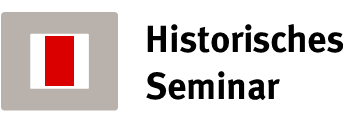Founded in 1877 by Theodor Lindner, the Department of History is the third oldest department at the University of Münster. But the tradition of historical studies in Münster goes back even further. As early as in the 18th century, Franz von Fürstenberg, in a effort to bring forward the field of historical sciences in Münster, planned the institution of three historical chairs for universal history, church history and the history of the German Empire, which should be assigned to the philosophical, theological and legal departments. It is not a coincidence that the building in which the Department of History is located is named after him.
Today, the Department of History with its wide range of chairs and professorships is one of the largest and most innovative locations of its kind in Germany. A total of 16 full professors teach here, supplemented by other, third-party-funded professorships.
Research and teaching at the Department of History range from the early Middle Ages to contemporary history. Other historical eras are covered by independent institutes. Some of the most important sub-disciplines dealt with are: cultural history, social and economic history, urban history, gender history, the history of interrelations and transcultural entanglements, as well as the history of knowledge and science. The profile of the Department of History is further defined by the existence of three professorships in historical auxiliary sciences.
Covering a wide geographical area, our department focuses not only on the local history of Westphalia and the national history of Germany, but also on France, England, the Iberian Peninsula and Eastern Europe, Byzantium, Africa, Oceania and North and South America. Questions of global and transnational history are also part of our portfolio.
Our students therefore benefit from a very broad teaching offer, which is further enriched by the various research projects and research institutions of our department as well as by cooperations with partners at the LWL and the Landesarchiv (archive of North Rhine-Westphalia).
On average, they can choose from about 30 introductory seminars (Proseminar), 40 exercises (Übungen), 30 advanced seminars (Hauptseminare), 10 Master seminars and 15 lectures (Vorlesungen). The offer also includes 7 public colloquia. The large teaching offer enables students of all History programs to gain a comprehensive overview of the subject area while providing them with the opportunity to choose their own thematic focus.
The Department of History at Münster University has been a location of excellent research and large research associations for a long time now. The very first Collaborative Research Center (CRC) for the humanities (SFB 7 "Medieval Research") was located in Münster, and it has been followed, almost uninterrupted, by other CRC's since. The CRC 1150 which ended in 2019 was dedicated to the “Cultures of Decision-Making”. In addition, the Department of History participates in the Cluster of Excellence “Religion and Politics” with numerous projects.
Moreover, our department integrates several well-established research units, i.e. the Institute for Early Medieval Studies, the Center for Medieval and Early Modern Studies, the Institute for Comparative Urban History, and the Institute of Economic and Social History.
The Department of History cultivates numerous international contacts including partnerships and cooperations with international research units and institutes like the German Historical Institutes in Paris and Warsaw, the University of Lusíada (Portugal) or the Colegio de San Luis Potosí (Mexico). The international orientation of the department is also recognizable by the presence of international guest researchers or the lectures by young French colleagues in the context of the colloquium " La jeune génération des médiévistes français invitée à Münster " which takes place on a regular basis.
The Department of History is a place of lively research. In addition to numerous congresses and conferences, the Department of History regularly organizes lecture series and research colloquia with contributions by national and international academics presenting their state-of-the-art research.
Thank you for your interest in the Department of History!

